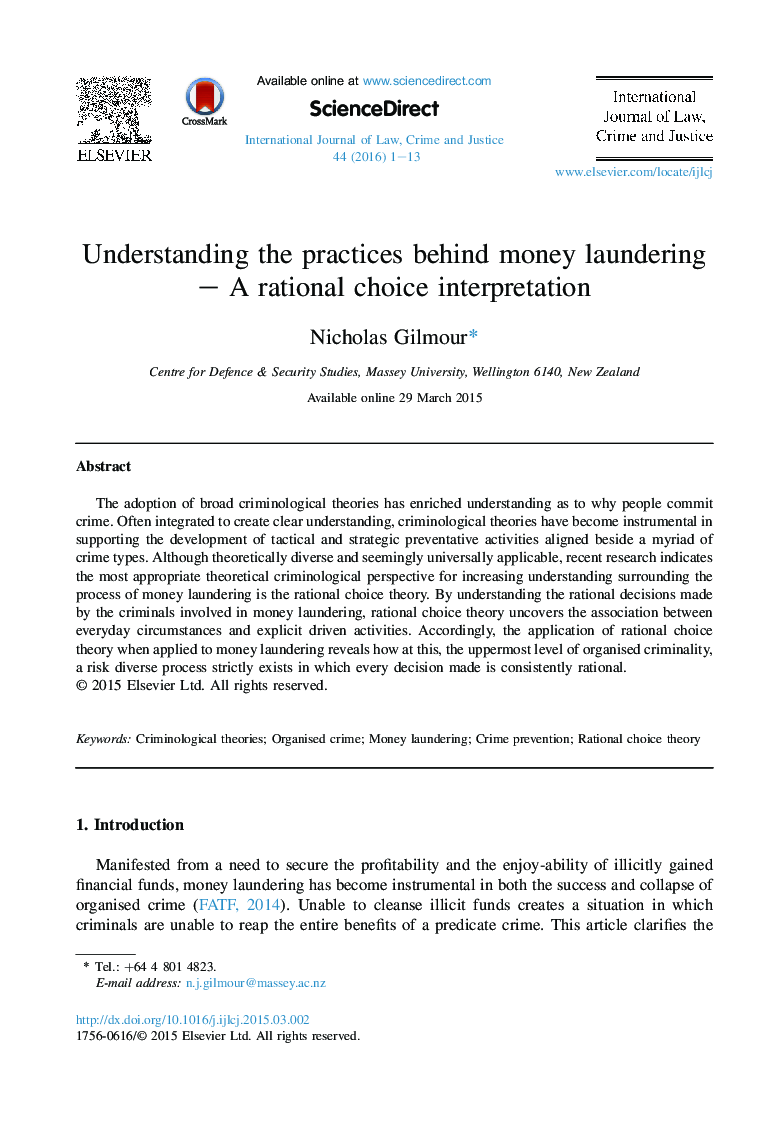| Article ID | Journal | Published Year | Pages | File Type |
|---|---|---|---|---|
| 1097841 | International Journal of Law, Crime and Justice | 2016 | 13 Pages |
The adoption of broad criminological theories has enriched understanding as to why people commit crime. Often integrated to create clear understanding, criminological theories have become instrumental in supporting the development of tactical and strategic preventative activities aligned beside a myriad of crime types. Although theoretically diverse and seemingly universally applicable, recent research indicates the most appropriate theoretical criminological perspective for increasing understanding surrounding the process of money laundering is the rational choice theory. By understanding the rational decisions made by the criminals involved in money laundering, rational choice theory uncovers the association between everyday circumstances and explicit driven activities. Accordingly, the application of rational choice theory when applied to money laundering reveals how at this, the uppermost level of organised criminality, a risk diverse process strictly exists in which every decision made is consistently rational.
